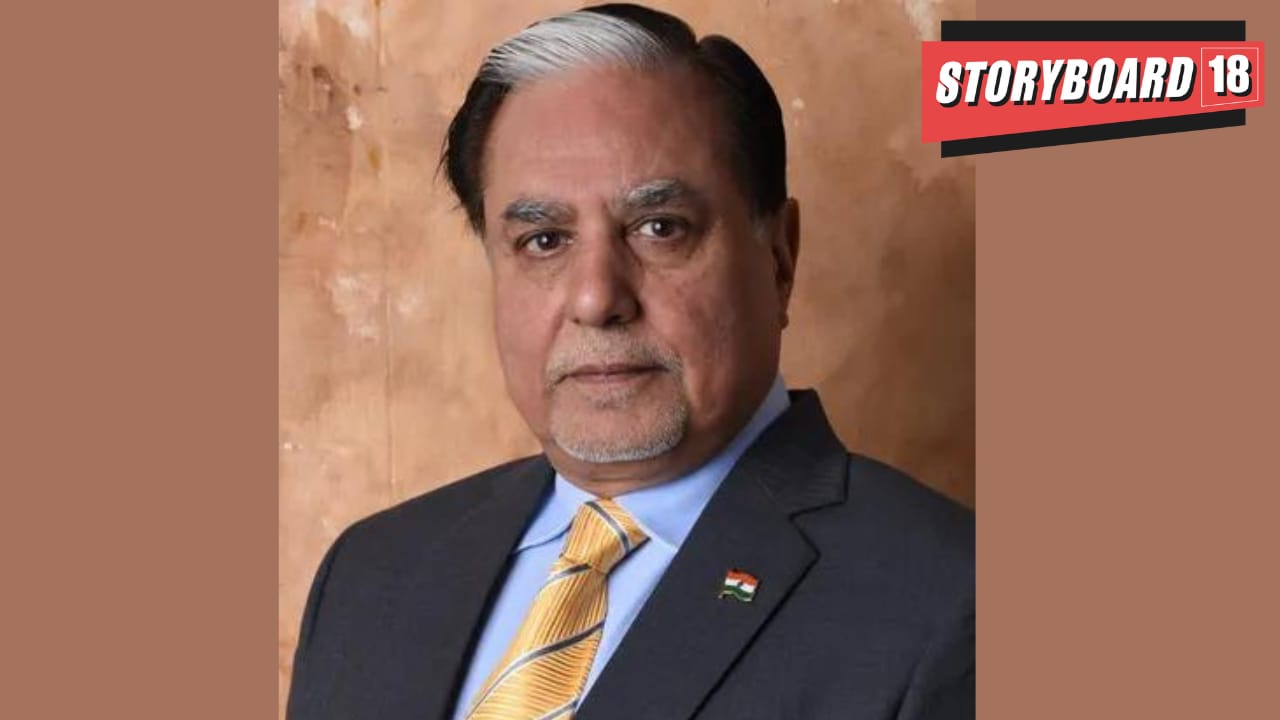Several changes have been underway at Zee Entertainment’s offices following the collapse of the proposed $10 billion merger with Sony Pictures Networks India (SPNI) in January 2024. Employees are not just grappling with layoffs, changes in reporting structures but also a lingering question – what role will Subhash Chandra, Zee’s Chairman Emeritus, play moving forward?
Chandra’s increased presence in Zee offices
Chandra has been making frequent visits to the Mumbai office and taking on a more active role than is typically expected of a Chairman Emeritus, a position typically reserved for retired executives who retain an honorary title. Chandra stepped down as Chairman in 2019, but his recent increased presence has sparked questions about potential disruptions to the new leadership structure. Chandra’s presence in Zee offices are more than just visits. He is reportedly involved in most important meetings and decisions taken by the company including layoff plans, while making visits at odd hours.
What are the powers of a Chairman Emeritus?
Paritosh Dhawan, Principal & Founder, at boutique law firm Dhawan and Co explains Chandra’s title and entitlements.
“While the title of ‘Chairman Emeritus’ carries a weighty significance, denoting respect and recognition for an individual’s contributions to an organisation, it’s important to discern its precise implications within the context of corporate governance. Unlike formal positions such as directors or Key Managerial Personnel (KMP) outlined in the Companies Act of 2013, the role of Chairman Emeritus does not carry statutory obligations or rights. Rather, it serves as a ceremonial distinction, acknowledging the wisdom and guidance that a retired leader can continue to offer,” Dhawan said.
According to Dhawan, amidst ongoing regulatory scrutiny and market volatility, the assurance provided by the Securities and Exchange Board of India (SEBI) to the Bombay High Court, indicating no imminent actions against Zee’s Chairman Emeritus until April 30th, offers a measure of stability and reassurance to stakeholders.
“The market regulator – SEBI would definitely closely observe the sudden engagement of Chandra in Zee,” he said.
In Dhawan’s view, with his decades of experience and vision, Chandra’s insights and leadership can provide guidance as Zee navigates through turbulent times.
But is it only guidance that Chandra is providing?
Perhaps not.
“He has played a key role in Punit Misra moving on from the company,” said another insider.
On April 4, Misra stepped down from his position of President of Content and International Markets.
Misra was the head of content for both the TV network of ZEE as well as its digital offering ZEE5, both domestically and globally. He also managed ZEEL’s international business spanning 190 countries.
Legal pitfalls of having a Chairman Emeritus
Even while Chairman Emeritus is more like an advisor to the board, Harvinder Singh, Partner, DSK Legal explained the downside of this arrangement.
“The dark side of the strategy to appoint a Chairman Emeritus is when this honorary position is created to circumvent the legal provisions, for example where a person holding a key position in the company is bound to vacate his office because of the legal disqualification imposed under company law or LODR (listing obligations and disclosure) or court order or SEBI’s order etc,” he explained.
According to Singh, Chairman Emeritus can easily become a shadow director exercising real but clandestine control over a company’s affairs, given the experience, goodwill and standing of the person appointed as Chairman Emeritus.
Is Zee management on board with Chandra’s return?
Talking of control, while there is nothing legally wrong about a company’s promoter talking about developments concerning the organisation, it is interesting how Chandra’s interview with a leading business daily in January 2024 was the first official media communication from the company after the merger collapse.
During the interview, Chandra discussed not only the unsuccessful merger but also outlined his intention to increase the family’s stake in the company to 26 percent.
While Zee did come up with a clarification soon after, it is unlikely that a full blown interview of the Chairman Emeritus went without passing through layers of discussions, screenings and approvals.
Does that mean the Zee board is accepting the official return of Chandra in day-to -day ops of the organisation?
Is that option legally available to Chandra?
“There is no specific provision under the Companies Act 2013 for Chairman Emeritus and thus the workings of such titles are governed by the contract between the title holder and the company,” said corporate law expert and founder of Vyas Legal, Vidhan Vyas.
“Usually, Chairman Emeritus are special invitees in board meetings without voting rights. Thus, this maintains the purity of the board as well as allows the members to take guidance from the title holder with his vast experience. Thus, any impact of Mr Chandra will be dependent on the contract for his post,” Vyas added.
According to Vyas, if there is mismanagement , the affected members can move the NCLT(National Company Law Tribunal) for redressal or else go for arbitration, if provided in the said contract.
